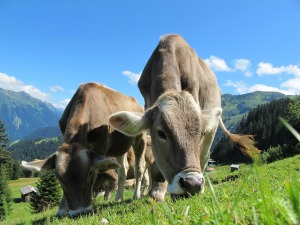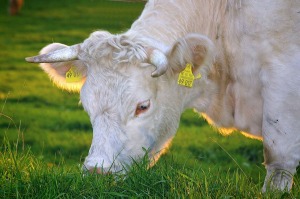If you own a farm, it is important that you take special care of your animals during the early spring when the weather is still cold and wet. Wet and windy conditions may give rise to concerns for your livestock and farm, so you need to take special care to keep your pasture and animals healthy during spring.
Spring weather is often stressful for livestock, especially for young animals. During cold and wet seasons your livestock may need special care and extra energy to cope with the fluctuating temperatures and wet, muddy conditions to stay healthy. As always be sure to provide your animals with access to fresh water, adequate dry shelter and proper health care.
We are going to share some essential tips regarding livestock health care and spring management in this article, that every livestock farmer must know.
Keeping your livestock healthy
Spring can be a difficult time for your livestock due to the sudden changes in temperature. It can still be too cold for new born animals and even for older weaned animals. Severe weather conditions can become a problem for your livestock. You must take appropriate measures in order to help your animals to cope with fluctuations in day and night temperature, rain, or snow. You also need to be prepared for sudden weather events and severe conditions.
“Lack of prior conditioning to weather events most often results in catastrophic losses” – The Pig Site
During the spring, there are several health issues you may face with your livestock, which is why you need to carefully monitor your animals. In dry conditions, your animals are able to tolerate lower temperatures than when they are wet, therefore you need to make sure that they stay dry and away from strong winds or blowing rain/snow.
Prevention is better than cure. Detecting early signs of illnesses will save your animals in most cases.
Diseases
 Many disease are caused by virus and bacteria. Environmental stress factors such as weather, dust, crowding, transporting, weaning, in adequate feeding, and poor ventilation can also affect animal health. When animals are stressed their immune system is weakened and their defense against diseases also is weakened. With a little preparation and care, several respiratory diseases can be prevented. Check with your vet for regular checkups, vaccinations, and health concerns during spring.
Many disease are caused by virus and bacteria. Environmental stress factors such as weather, dust, crowding, transporting, weaning, in adequate feeding, and poor ventilation can also affect animal health. When animals are stressed their immune system is weakened and their defense against diseases also is weakened. With a little preparation and care, several respiratory diseases can be prevented. Check with your vet for regular checkups, vaccinations, and health concerns during spring.
Fighting parasites
Fighting worms in animals is important because parasite infestation can cause problems for animal health even when a small number are present, often with no visible signs. Parasites and worms present a major threat to grazing animals. The main worms affecting cattle are digestive tract worms and lung-worms, specifically roundworms and tapeworms. Some of these worms can stay dormant and do not show symptoms until the weather starts to get warmer. Stomach and intestinal worms can cause diarrhea, loss in appetite, and weight loss. Lung worms may cause coughing and barbers pole worms cause anemia.
Mature animals may be relatively immune to worms. Young animals are more susceptible to high levels of parasite infestation. Using a low risk clean pasture will reduce the risk of worm infection. Administering de-wormers is an important step for controlling worm infections. Choose a deworming program based on your needs.
Feeding your animals
 Most farm animals like chickens, pigs, cattle, or alpaca will need additional food and supplements to cope with fluctuating weather and wet conditions. You will need to provide additional supplements and a well-balanced, highly nutritious diet. They need the extra energy to stay warm and healthy in order to graze on pastures which may still be covered with snow. Usually they will need roughly 1 percent more for each degree below 60 degrees.
Most farm animals like chickens, pigs, cattle, or alpaca will need additional food and supplements to cope with fluctuating weather and wet conditions. You will need to provide additional supplements and a well-balanced, highly nutritious diet. They need the extra energy to stay warm and healthy in order to graze on pastures which may still be covered with snow. Usually they will need roughly 1 percent more for each degree below 60 degrees.
Want to learn more about livestock welfare? Click here to book a meeting with us.
Have you tried our DIY systems? If you have, please provide us your feedback on it. If you haven’t tried it, now is the best time to obtain a DIY system and try it yourself. To obtain your DIY system and seeds please contact us at 303-495-3705
Find DIY plans for proven livestock feeding systems here. You can also get your Feed in A Box Microgreens (fodder) from us to see how great it is!!
If you would like to learn more about it, please leave your questions or comments in the comment box below or visit our Facebook Page and leave your comment there.
Source: Sustainable Livestock Nutrition



